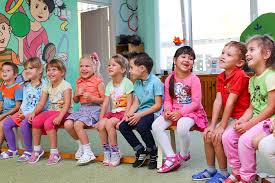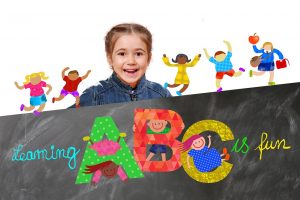What do teachers want your child to know when he enters kindergarten? Some of the things I would like my students to know coming into kindergarten are identification of letter names and some sounds, recognition of numbers 1-10, the ability to write and recognize their names, recognition of basic colors and shapes, and the ability to cut with scissors. It is also very important for each child to be able to follow directions and express himself as well as having self-help skills. The following link discusses readiness skills your child needs: ccswfl.org/…/9-kindergarten-readiness-skills-your-child-needs .
It is very easy to focus on the basics of letter and number recognition. Reading aloud to your child will inspire the love of reading. Have your child form letters and numbers out of play dough or write them on the sidewalk using chalk. Count the signs while driving or name the colors around a room. However, kindergarten readiness also encompasses other skills. It is important to look at the whole child and all the abilities and strengths each child has.
Encourage your child to develop independence. Have your child get himself dressed, take his coat on and off, and hang it up in the appropriate place. Your child needs to be encouraged to use the bathroom without assistance and wash his hands without reminders. Teach your child how to put his shoes on the correct feet and tie them. Another essential focus should be on self-help skills such as wiping his face after lunch or blowing his nose without assistance. However, it is also important that your child is also comfortable asking an adult for help when necessary. Acquiring these skills will help your child gain the confidence he needs to become even more independent, as well as responsible for his own behavior and actions.
Develop routines that will transfer into a school setting to help make going to school an easy transition. Have regular routines for mealtime and bedtime. So once your child has gotten into his pajamas by himself and brushed his teeth, let him pick out a book for you to read to him. Develop the same morning routine before school as well as a routine after school. Have your child put their backpacks in the same place each day unpacking it himself to share with you any papers from school. Set a time each week to have your child clean/organize their bedroom or space. Another important factor to consider when you are setting up new routines, is to remember to err on the side of kids doing things themselves. When kids do something independently, they can take ownership of it. They also learn how to do it. None of this happens when the parent does it for them.

Social time is an additional piece that all students should have had. Provide your child with positive experiences that include other children– either in a preschool, daycare, or play date setting– to promote successful social time at school. This will help him understand how important it is to include others during play. Talk to your child about how kindness and respect are vital to all friendships. Help him learn how to solve problems with words to build and sustain these friendships.
Kindergarten is an exciting time in your child’s life; support this milestone by embracing his enthusiasm.


